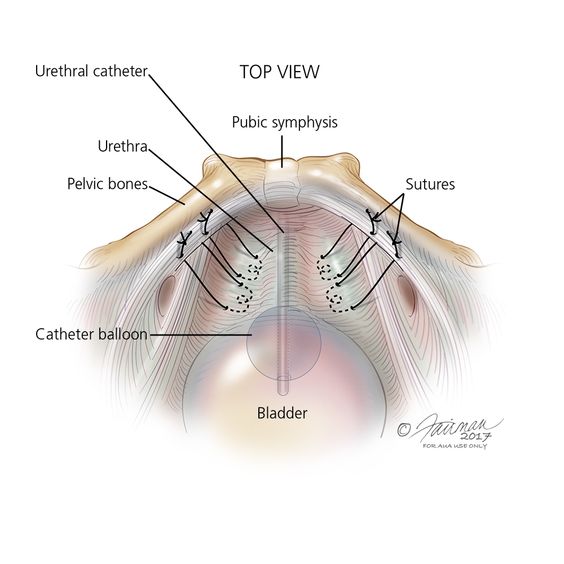The Role of Female Urologists in Women’s Healthcare:
Urology, often mistakenly associated only with male health, is vital for individuals of all genders. This guide highlights the pivotal role of urologists, particularly female specialists, in diagnosing and managing urological conditions across sexes.
Beyond the historically male-focused perception, urology encompasses diverse issues such as urinary tract infections, incontinence, kidney stones, and pelvic organ prolapse, affecting quality of life universally.

Female urologists bring specialized expertise in addressing the unique urological needs of women, including UTIs, overactive bladder, and pelvic floor dysfunction. They offer personalized care while considering psychosocial and cultural factors, fostering inclusive environments for discussions and treatment.
Additionally, they contribute to research, driving innovation for better diagnosis and treatment modalities.
By recognizing urology’s significance beyond gender stereotypes, we promote inclusivity and access to quality care for all individuals, ensuring their urological health needs are met effectively.
Urologists: Just for women :
Urologists are medical doctors who specialize in the diagnosis and treatment of disorders related to the urinary tract system in both men and women, as well as male reproductive organs.
However, your request specifies “just for women,” so in that context, a urologist for women would primarily focus on conditions and issues related to the female urinary tract system, such as urinary incontinence, urinary tract infections (UTIs), bladder disorders, kidney stones, and pelvic floor disorders.
They may also address issues related to female sexual health and reproductive system, such as pelvic organ prolapse or female sexual dysfunction. These specialists undergo extensive training and may work closely with other medical professionals, such as gynecologists or urogynecologists, to provide comprehensive care for women’s urological health.
Exploring Female Urological Health:
Female urological health encompasses the urinary system’s well-being in women, addressing issues like urinary tract infections (UTIs), incontinence, pelvic organ prolapse, and bladder disorders.
Prompt diagnosis, lifestyle adjustments, and medical intervention, including consultation with specialists like urologists or urogynecologists, are vital for maintaining optimal urological health in women.
What Do You Call a Female Urologist?
Female urologists also referred to as urogynecologists, are skilled healthcare providers with specialized training in the diagnosis and management of urological conditions specific to women.
Their expertise extends across a spectrum of issues, encompassing urinary tract infections and disorders of the reproductive system.
Why Is Female Urology Important?
Women’s urologists play a crucial role in optimizing the quality of life for female patients by delivering specialized medical services tailored to address a spectrum of urological conditions. These conditions encompass urinary incontinence, cystitis, nephrolithiasis, and pelvic floor disorders.
Urological Issues in Women:
Frequently encountered urological issues among female patients encompass urinary tract infections (UTIs), overactive bladder (OAB), nephrolithiasis (kidney stones), pelvic organ prolapse (POP), and urinary incontinence.
Addressing each condition necessitates a tailored and comprehensive approach to management and therapeutic intervention.
Why Would a Woman Need to See a Female Urologist:
Women may seek consultation with a female urologist for diverse reasons, such as recurrent urinary tract infections (UTIs), issues with bladder control, kidney stones, and pelvic floor disorders, among others.
Female urologists possess the necessary expertise to address these concerns effectively, providing accurate diagnosis and appropriate treatment. To locate a female urologist nearby, consider conducting a search using online directories or healthcare provider databases specific to your area.
Additionally, seeking referrals from primary care physicians or gynecologists may aid in finding a qualified female urologist in your vicinity.
Should Women Seek Care from a Urologist or Gynecologist?
Choosing between a female urologist and a gynecologist depends on the health issue. For urinary and bladder problems, a urologist is best. Gynecologists focus on reproductive health.
What Does a Urologist Do for Females on the First Visit:
During the initial consultation, a female urologist will:

- Conduct a thorough review of the patient’s medical history, encompassing pertinent details relevant to urological health.
- Perform a meticulous physical examination, with emphasis on assessing the urinary tract and associated systems.
- Order diagnostic procedures, including but not limited to urinalysis, ultrasound imaging, or urodynamic studies, to facilitate accurate diagnosis and treatment planning.
- Engage in an in-depth discussion with the patient regarding symptoms and concerns, culminating in the formulation of a preliminary diagnosis and development of an appropriate treatment strategy.
Available Treatment Modalities in Female Urology:
In the field of female urology, treatment modalities are varied and tailored to address the unique requirements of each condition:
Medications: Prescribed to manage infections, alleviate symptoms, and address specific conditions such as overactive bladder or urinary incontinence
Minimally Invasive Procedures: Techniques like UroLift, laser therapies, and laparoscopic surgeries offer less disruptive alternatives to traditional surgeries.
Lifestyle Modifications: Incorporating changes in diet, pelvic floor exercises, and behavioral therapies is pivotal in managing conditions like urinary incontinence and overactive bladder.
Surgical Interventions: Reserved for more severe cases, surgical options like sling procedures for stress incontinence or surgeries for pelvic organ prolapse may be recommended.
Neuromodulation Therapies: Techniques such as sacral nerve stimulation are effective for treating overactive bladder and other functional disorders.
Personalized Care:
Every woman undergoing consultation with a female urologist receives a personalized treatment regimen meticulously tailored to her unique symptoms and overall health status. This bespoke approach guarantees the implementation of the most effective and suitable therapeutic interventions for each individual.
Important Illnesses Handled by Women Urologists:
Bladder Control Problems:
- Urinary Incontinence (UI): Treatment options encompass a variety of approaches ranging from pelvic floor exercises to surgical interventions.
- Overactive Bladder: Typically managed through a comprehensive regimen involving a combination of medications, lifestyle modifications, and occasionally neuromodulation therapies.

Urinary Tract Infections (UTIs):
- UTIs are commonly addressed through antibiotic therapy, supplemented by preventive measures aimed at reducing the likelihood of recurrence
Kidney Stones:
- Treatment options for kidney stones typically involve pain management, promoting increased fluid intake to facilitate natural passage, and, in some cases, surgical removal may be necessary.
Prolonged Bladder Pain:
- Addressed through a holistic approach incorporating medication, physical therapy, and lifestyle adjustments tailored to the patient’s symptoms.
Painful Bladder Syndrome:
- Managed by a female urologist through dietary modifications, stress management techniques, and, when necessary, medication.
Fallen Bladder (Cystocele):
- Non-surgical interventions such as pessaries are explored, with surgical repair reserved for more severe cases.
Lower Back or Groin Pain:
- These symptoms may indicate underlying urological conditions, such as kidney stones, necessitating prompt medical evaluation and intervention.
In Conclusion:
In the field of female urology, particularly concerning women’s health, the expertise of professionals such as Dr. Ayesha Saleem is indispensable. His approach to addressing intricate female urological issues, spanning from urinary incontinence to kidney stones, epitomizes the elevated standard of care expected from a female urologist.
Whether you’re searching for a “female urologist near me” or seeking guidance on “women’s urological problems,” it’s crucial to recognize that specialists like Dr.Ayesha Saleem deliver personalized and effective treatment. For those considering “seeing a female urologist,” the assurance of receiving quality care underscores each consultation, ensuring enhanced health outcomes and an improved quality of life.
FAQs:
What conditions does a female urologist treat?
Female urologists address urinary tract infections, incontinence, pelvic organ prolapse, and other urological issues specific to women.
Do I need a referral to see a female urologist?
In most cases, a referral is not necessary. You can schedule an appointment directly with a female urologist.
Can a female urologist perform surgery?
Yes, female urologists are trained to perform surgical procedures to treat various urological conditions in women
What should I expect during a visit to a female urologist?
Expect a thorough evaluation, discussions about symptoms, potential diagnostic tests, and personalized treatment plans tailored to your urological needs.
Can a female urologist diagnose and treat kidney problems?
Absolutely, female urologists are skilled in diagnosing and managing a range of kidney conditions, such as kidney stones and infections.


